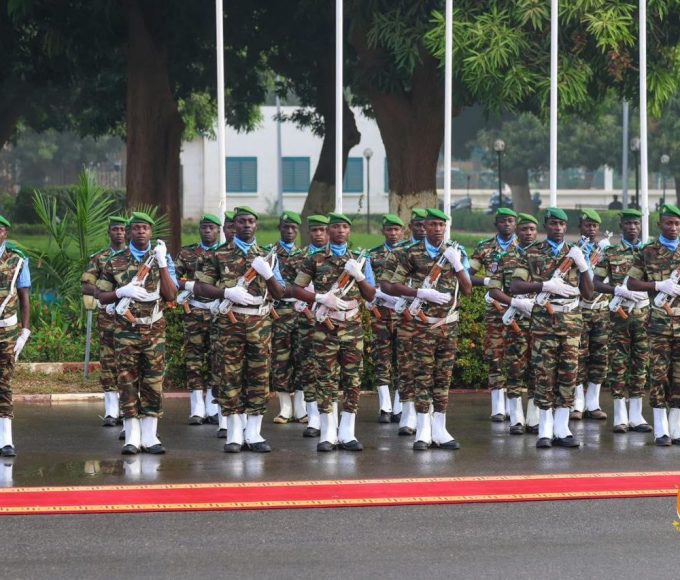
Burkina Faso, Mali, Niger Finalise Joint Plan to Exit ICC and Establish Sahelian Court

The justice ministers of Mali, Burkina Faso, and Niger — the three member states of the Confederation of Sahel States (CSS) met this week in Niamey to finalise plans for a coordinated withdrawal from the International Criminal Court (ICC), signalling a major geopolitical and judicial shift in the region.
The extraordinary summit, held on 16 September in the Nigerien capital, concluded with a shared commitment to exit the ICC and establish a regional alternative: the Sahelian Criminal Court for Human Rights.
The ministers expressed dissatisfaction with the current structure and practices of the ICC, accusing it of bias and serving foreign geopolitical interests.
Niger’s acting Prime Minister, General Mohamed Toumba, stated that the time had come to “reconsider participation in the Rome Statute,” the founding treaty of the ICC. He accused the Hague-based court of functioning as “an instrument of repression against African countries.” He criticised it for acting “often without any evidence or [relying] on false grounds of serious and widespread human rights violations.”
According to sources cited by Jeune Afrique, the legal documents for the withdrawal have already been prepared, and a formal announcement is expected in the coming days.
Related News: Confederation of Sahel States Moves to Establish Joint Judicial Body
Under ICC regulations, any member state’s withdrawal becomes effective one year after the submission of official written notification. Importantly, ongoing investigations and cases initiated before the withdrawal would still retain legal validity.
The proposed Sahelian Criminal Court would have jurisdiction over international crimes, terrorism, and organised crime, that is, key issues affecting the security and stability of the Sahel region. The idea reflects the CSS’s growing emphasis on regional sovereignty, legal autonomy, and resistance to perceived neocolonial interference.
The development follows recent ICC action in the region. In June 2024, the court sentenced Al-Hassan Ag Abdoul Aziz, a former member of the Islamist police in Timbuktu, to ten years in prison for war crimes and crimes against humanity. The ICC continues to pursue Iyad Ag Ghaly, the leader of the jihadist group Jamaat Nasr al-Islam wal Muslimin (JNIM), who remains on its international wanted list.
About The Author
Mayowa Durosinmi
author
M. Durosinmi is a West Africa Weekly investigative reporter covering Politics, Human Rights, Health, and Security in West Africa and the Sahel Region
Mayowa Durosinmi
M. Durosinmi is a West Africa Weekly investigative reporter covering Politics, Human Rights, Health, and Security in West Africa and the Sahel Region
20 Comments
Leave a Reply Cancel reply
Related Articles
Tinubu Government Claims Intelligence Cooperation With the US, Yet New York Times Publishes Conflicting Story Following $9 Million US Lobbying Effort
When the New York Times published its investigation suggesting that claims from...
ByWest Africa WeeklyJanuary 19, 2026Mali’s Transition Leader Attends Swearing-In of Guinea’s President Mamadi Doumbouya
Mali’s President of the Transition, General Assimi Goïta, represented the country in...
ByWest Africa WeeklyJanuary 19, 2026Niger’s Security Forces Record Major Gains Against Armed Groups
Niger’s Defence and Security Forces have reported significant results following a week...
ByWest Africa WeeklyJanuary 19, 2026Burkina Faso Adopts Law Defining Status of Traditional and Customary Chiefs
Burkina Faso’s Transitional Legislative Assembly has adopted a new law establishing the...
ByWest Africa WeeklyJanuary 19, 2026












Good one from Burkina Faso Mali and Niger. It’s time Africans let them know we have same brain and not to continue taking Africans for a ride. We are tired of these imperialists.
You have you own understanding…so make it beneficial to all respective of all rces
This is a good idea.
Is better to leave they failed arresting israel leaders…and to stop thew genocide in Gaza.
Africa must be united to fight corruption from those countries, which are our enemies. Burkina Faso, mail and Niger. Now days these three countries are best in Africa I hope African Union to understand we are not slaves.
Enough is enough. New generation needs freedom.
A very impressive move by all three of you. Wish you’ll best of luck and success.
I am sure lots of African countries would appreciate and join soon.
A very impressive move by all three of you. Wish you’ll best all best of luck and success. I am sure lots of African countries would appreciate and join soon
Let this be an awakening to all those corrupt leaders, who don’t question what the west says, nd just follow orders like puppets on a string.
Well done Burkina Faso, Niger, nd Mali, keep on pushing nd teaching others to stop being dependant on foreign powers.
Good development for wise African nations who are not ready to continue being slaves to the west.
I support the sahel states decision. Independence is paramount in judiciary matters as well.
I support the sahel states decision. Independence is paramount in judiciary matters as well.
Freedom from *international oppressors at last step by step.
Free your Mind and your Ass will follow
Thank you
My submission on the matters arising in continent of Africa and the world in general. Truth is truth nothing but, the truth. Why do we got here in the first place. Looking at this angles, partisan politics, democracy, independence, and finally a sovereign state. Is there any country in the world to give you this right or you have to fight for it.? Upon all the resources each and other countries have in abundance , but why are we still poor.!
Looking at all this so called humanitarian bodies. NGOs USAID IMF WHO UNICEF American peace core and the foreign military based in the continent of Africa. Were those bodies formed in the interest of humanity in general or just to control the African people.? And if so doing, why not Africa has a seat in the UN security council. ?????? All the regional bodies in the continent of Africa, why no single body has its own structure of economic block and have one unified currency.? And why the one continental unity with one currency cannot be achieved. And why.
Let’s get back to the Blessed people we once were. Children of YAHUA. Let’s turn from our sinful ways and put YAHUA first.
Congratulations to Burkina Faso, Mali, Niger the Sahel countries for opting out of bondage
These three African countries are lucky to have Presidents
Main this guy’s are my role model in fact I will like to nationalize and associate with them
It’s good for African to show they have brain to do what ever they want and knowledge of it,so let them see our true history
Bravo!!!!
Congratulations to Burkina Faso, Mali, and Niger—the Sahel nations—for breaking free from the grip of colonial masters. These countries are fortunate to have leaders who are not puppets.
Other African leaders should learn from these three countries